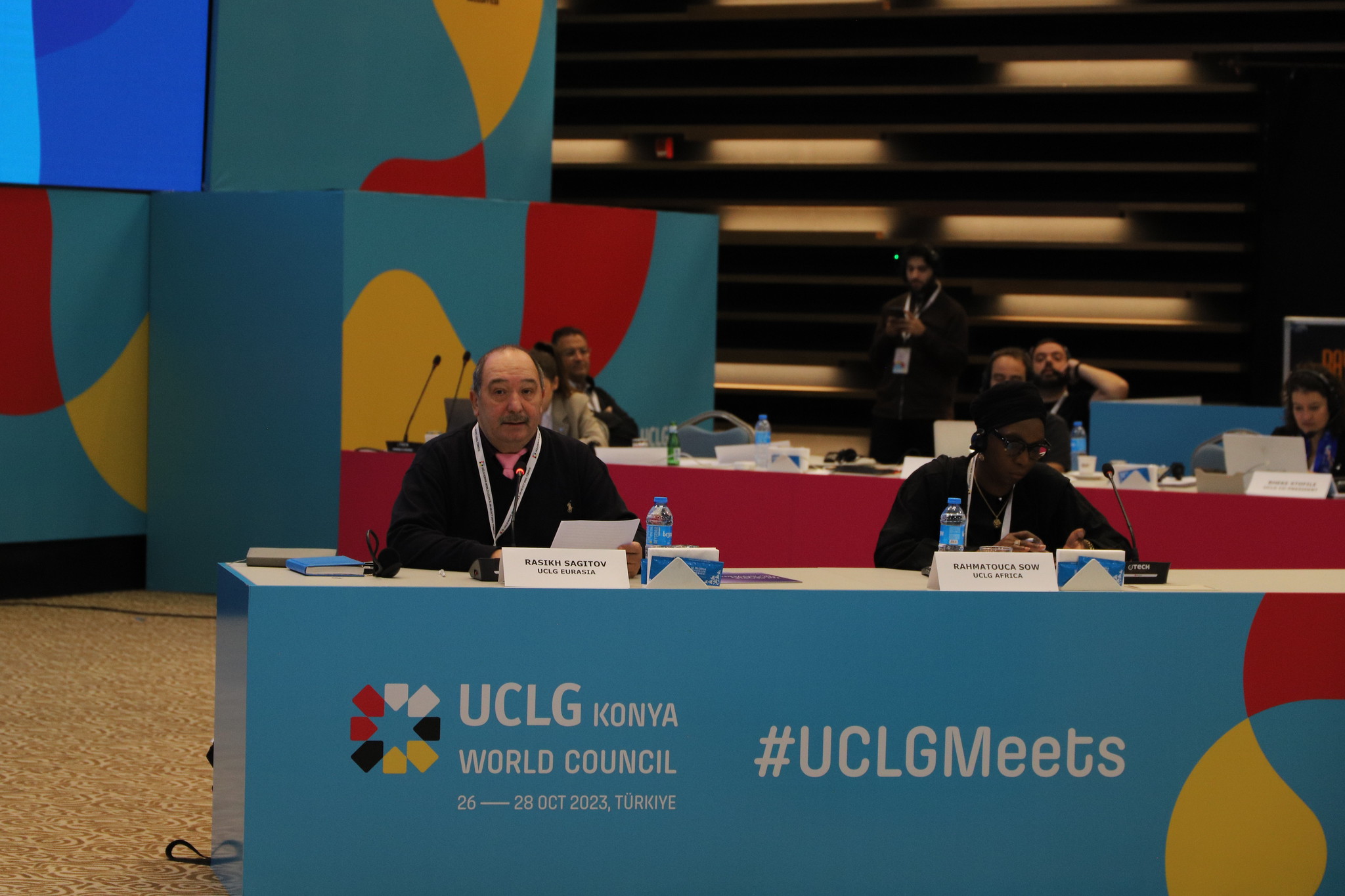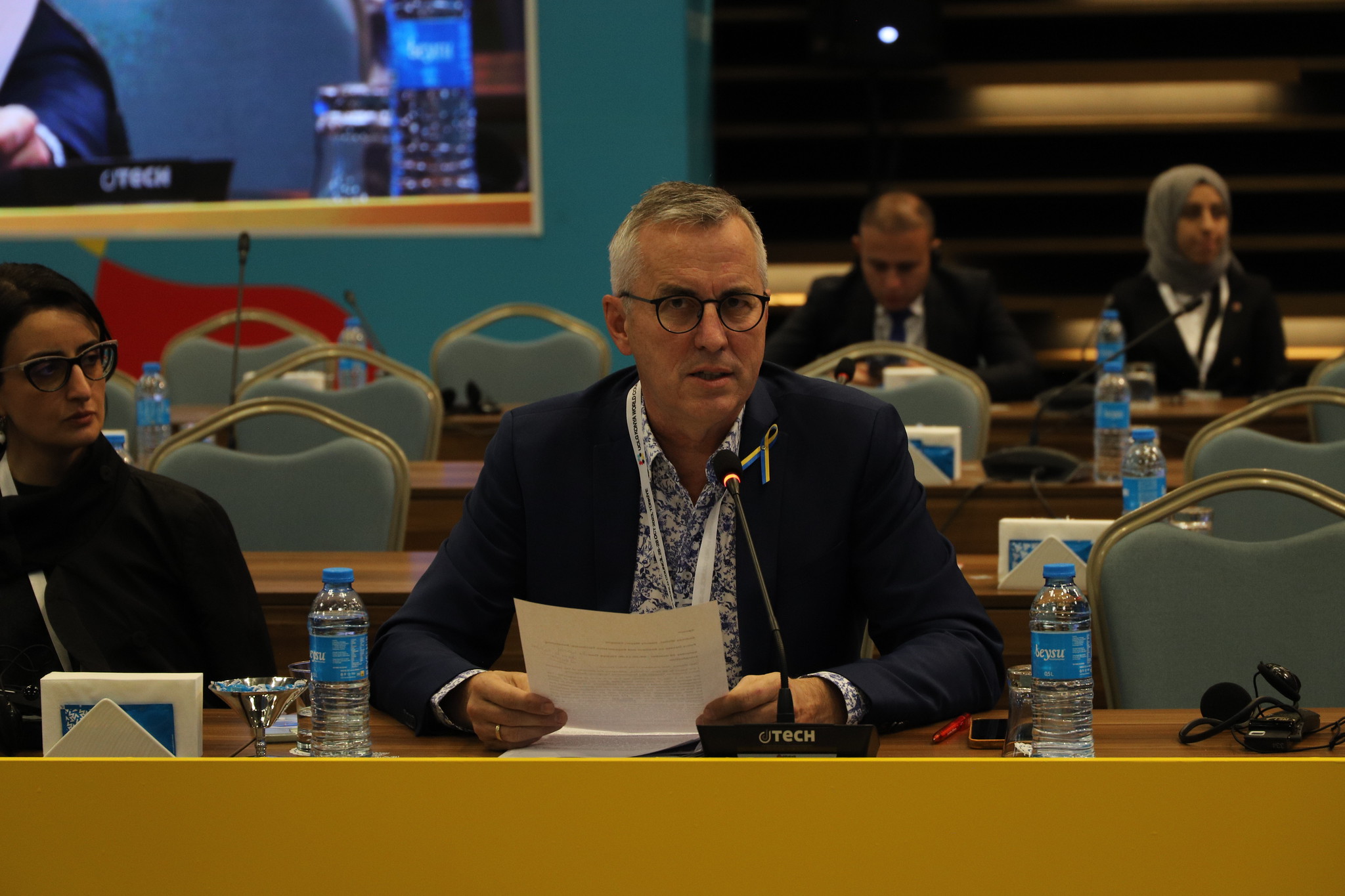Coverage Policy debate Resilient and Regenerative Territories: Renaturing
02.11.2023
Background
The Policy Councils were created in 2017 with the aim of providing an opportunity for political representatives to participate in the Organization’s policymaking and to have their views raised before the UCLG’s governing bodies. They usually meet twice a year in the framework of the UCLG statutory meetings to bring forward initiatives, ideas, and recommendations that enrich the policy ownership and the political debate within the Organization.
During its first five years of existence, the Policy Councils introduced significant advances not only in the organization’s narrative – with substantive contributions to our agenda on the Right to the City or the New Urgan Agenda, among others – but also in terms of innovative processes that have been key to the international positioning of the network, such as the UCLG Municipal Peace Talks.

Where we are: The legacy of the Policy Council on Safer, Resilient and Sustainable Cities, Capable of Facing Crises
In the era of the Pact for the Future – Daejeon Political Declaration, the renewed mandate is setting up the next stage of the UCLG Policy Councils. The session opened with a moment to take stock of the work done by the Policy Council on Safer, Resilient and Sustainable Cities, Capable of Facing Crises. The localization of the Sendai Framework for Disaster Risk Reduction, and the focus on governing in emergencies in light of the climate and sanitary crises have been critical to advance to the next step, in which the Policy Council will work towards the development of innovative actions that can transform the relationships between communities, governments, and the environment.
UCLG Secretary General Emilia Saiz facilitated the session, setting the stage for the new era of the Policy Council, with Rasikh Sagitov, Secretary General of UCLG-Eurasia presenting the legacy: from the prior work of the Policy Council to the relationship of the Pact for the Future – Daejeon Political Declaration with the renewed work of the Council.

From pact to Act: The Future Envisioning Exercises feeding the priorities of the renewed Policy Council
Deputy Mayor of Cologne Andreas Wolter, presented the renewed priorities of the Policy Council. The renewed Policy Council will advance the discussion on the need to decouple human development and wellbeing, in harmony with nature, and divert from an economy focused around growth towards an economy that is sustainable and equality-driven, redressing the uneven distribution of environmental burdens and benefits to ensure a just ecological transition.
“The Pact for the Future of Humanity stresses the need to transform our collective relationship with nature. For local and regional governments to spearhead the development of a new vision for our common future that addresses climate change, both from a mitigation and adaptation lens, re-analyse the values that shape our understanding as beings, and where we develop pathways that are nature-positive and seriously address inequalities.” Andreas Wolter, Deputy Mayor of Cologne
The Policy Council debate included a space for dialogue that built on the Future Envisioning Exercises, which are convened once a year to feed the priorities of the Policy Councils. The Agora segment of the Policy debate included the voices of Ashok Kumar Byanju Shrestha, Mayor of Dhulikhel and Vice-President of UCLG for ASPAC, Zhu Yongqian, Xi’an Ecology and Environment Bureau, Anders Knape, Vice-President of Karlstad Council; and Carlos Martínez, Mayor of Soria and UCLG Special Envoy for the New Urban Agenda.

Wrap-up: Collective commitments towards the Summit of the Future
The session wrapped up with a strong commitment to change our relationship with nature; with common goods seen as shared goods that need to be protected; protecting planetary boundaries, and working to acknowledge less industrialised areas of the world as essential partners to face climate change.
Carlos Martínez, Mayor of Soria, made explicit the links between the need to renature and the implementation of the New Urban Agenda. He emphasized that small and intermediary cities are integral to address inequalities, and transform development from “growth without measure” to a system of development that is meant for human beings.